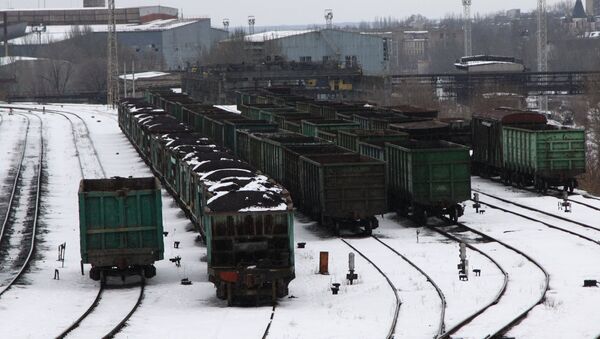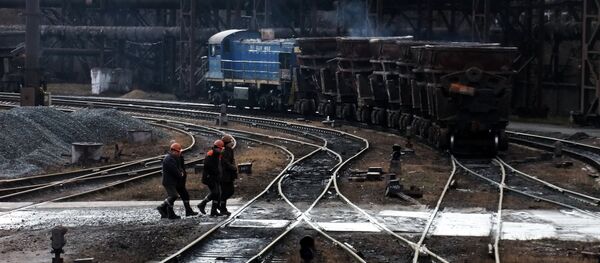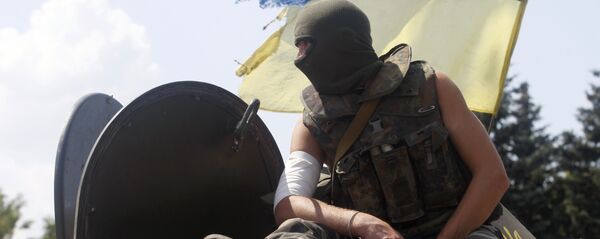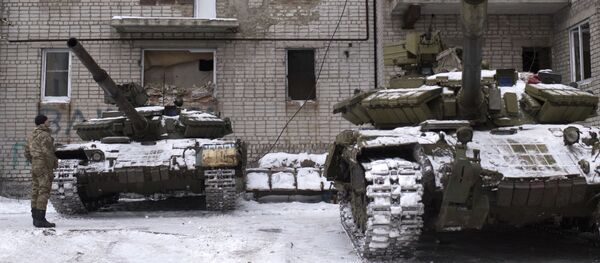"We are cutting all ties with Ukraine, with which we are at war. Yes, we were selling coal to get money and pay wages here. But due to the fact that we have learned to live in the blockade, we are declaring a blockade on Ukraine," Zakharchenko told reporters.
In late December 2016, a so-called Ukrainian volunteer fighters group declared a trade and economic blockade of the self-proclaimed DPR and Luhansk People’s Republic (LPR). According to the group, any trade operations with the self-proclaimed republics are illegal.
On March 1, the self-proclaimed republics decided to impose a receivership regime on Ukrainian enterprises in the area in response to the transport blockade.
According to Dmitry Galochkin, a member of the Russian Civic Chamber, in the current situation the Donbass self-proclaimed republic had no alternative but to respond with symmetric measures.
The expert noted that by blockading transportation routes to Donbass, Kiev violates international law norms.
"What the DPR is doing is a tit-for-tat response. The self-proclaimed republic has run out of patience. People are dying, but Kiev is building barriers and imposing a blockade," he pointed out.
Galochkin suggested that the current state of affairs is likely to have a negative effect on the Ukrainian economy.
"Ukrainian factories need coal from Donbass. They cannot work with other types of coal. The blockade is likely to be negative for the economy, including disruptions in the power-generating sector," he said.
Furthermore, Galochkin noted that Kiev may impose even stricter measures against the DPR and the LPR.
"The Ukrainian government may impose sanctions against certain individuals or simply harden its rhetoric. It’s clear that Kiev wants to portray not only the self-proclaimed republics as aggressors, but also Russia. It may also call for sanctions against Moscow. But all of Ukraine's previous actions have only backfired on its economy," he concluded.
Never miss a story again — sign up to our Telegram channel and we'll keep you up to speed!






